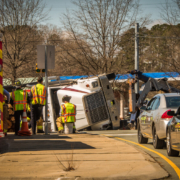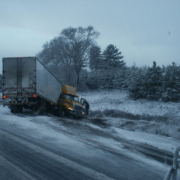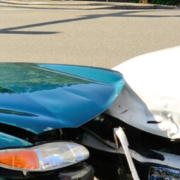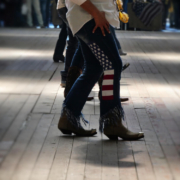3 Most Common Types of Product Liability Claims
Our economy is becoming increasingly complex with each passing year. And every year, countless new products are introduced to consumers. Unfortunately, many of these products are rushed to the market without proper testing and without addressing various flaws that could cause injury. Others encounter problems with production of the product that make the product more dangerous.
In a haste to quickly recover research and development costs, many companies put profits before people and put out products that are not safe for consumers. This results in hundreds of thousands of serious injuries throughout the country each year due to dangerous or defective products.
There are no federal product liability laws. Each state has its own set of laws, and product-related injury claims are brought in state courts. State laws require that a product meets a minimum standard of safety and quality. If a product maker knowingly or unknowingly puts an unsafe product in the hands of the public, they can be held liable for damages.
In West Virginia, product liability claims can be brought under the legal theories of negligence, strict liability, and breach of warranty. These three theories require different elements of proof, and in some cases, a claim could be submitted using two or three of these theories simultaneously.
Negligence
The main elements of a product liability claim based on negligence include:
- The product producer owed a duty of care to the consumer to design, manufacture, and deliver a safe product;
- Because the product was defective in some way, the defendant breached this duty of care;
- The plaintiff suffered injury;
- The defendant’s breach was the proximate cause of the plaintiff’s injury.
Negligence is a valid cause of action in many product liability cases. However, the theories of strict liability and breach of warranty are more commonly used with these types of cases.
Strict Liability
Strict liability is the preferred legal theory in product liability cases, because it removes the burden of proving that the defendant was negligent. Instead, you only need to prove that the product was defective in some way and the product defect resulted in the plaintiff’s injury. Because this theory focuses on the defect in the product rather than the conduct of the defendant, a strict liability claim can be brought against any party in the product supply chain.
There are three general types of product defect claims (that are usually brought under the theory of strict liability):
- Design Defects: Products are supposed to be designed in a manner that is “reasonably safe for its intended use.” If a product design is defective or inherently dangerous and a design flaw resulted in the plaintiff’s injury, the defendant may be held liable. One common example of a defective design is a vehicle with a high center of gravity that overturns easily at higher speeds and under heavy winds.
- Manufacturing Defects: These are products that are designed correctly, but there is an error in the manufacturing process that makes the product unsafe for consumers. Using the vehicle example again, a manufacturing defect might occur if the vehicle is missing its brake pads, resulting in a crash.
- Use Defects: These are failures to adequately warn consumers about dangers in how a product is used. For example, if a cough syrup was correctly made and generally safe, but the label did not adequately warn consumers that mixing it with aspirin could cause dangerous side effects, a product liability claim could be brought based on failure to warn.
Breach of Warranty
This theory is based on the promise or guarantee that a product makes about how it will act or perform. Warranties may be explicit or implied, and the warranty may be limited to a specified period of time or it may be a lifetime guarantee. In general, a person does not need to have been a party to the original warranty to have standing to sue for breach of warranty, and a claim can be brought against any party in the product supply chain.
Injured by a Dangerous or Defective Product in West Virginia? Contact a Seasoned Product Liability Lawyer
Product liability claims can turn into complicated legal actions. Most product makers have expensive legal teams on retainer that are ready to aggressively defend their client. For this reason, it is important to have a strong legal advocate in your corner fighting hard to ensure that you receive the just compensation you deserve, and that those responsible for the product defect that caused your injuries are held fully accountable.
At Bailey, Javins, and Carter L.C., we have stood up for the consumers of West Virginia for over 40 years. Our lawyers have extensive knowledge of this area of the law, and we have successfully pursued countless product liability claims on behalf of our clients. To schedule a free consultation with one of our skilled attorneys, call our office today at (800) 497-0234 or (800) 296-6979, or message us through our web contact form.









 https://www.reuters.com/investigates/special-report/bankruptcy-tactics-two-step/
https://www.reuters.com/investigates/special-report/bankruptcy-tactics-two-step/

